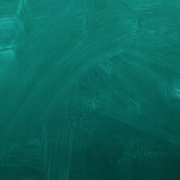Statement of Teaching Philosophy 2011
I believe that there are basically two types of instructors: those who make it easy for their students to learn and understand the material presented in class and those who want to withhold information and make it difficult to learn. The latter type fails to understand that education is a service industry. I believe that my role as an educator is to provide opportunity, support, and guidance to students in their education. I am a resource for my students. My job is to present information in an understandable manner so they can learn to use it profitably. Through this development of critical thinking and problem-solving skills, students not only obtain knowledge but also understand how it can enhance their lives and the society they live in.
The student’s responsibility in this relationship is to have a desire to learn, a willingness to utilize available resources, and be open to new ideas. The relationship between student and educator can ultimately determine if an educational endeavor will be successful. The student can learn how to utilize resources; but, if they come to class without the desire and openness to learn, then mastering the material can be difficult. Conversely, if the teacher doesn’t adequately prepare lessons, or show a willingness to work at making their teaching methods more effective, then again, learning can be difficult for the student. Great moments in teaching are when an instructor sees their students master information and techniques. I love watching a student’s eyes light up as they suddenly understand a concept they were struggling to master. I find it very rewarding to see my students succeed in their classes and develop an appreciation and understanding of chemistry.
I also believe that teaching is about selling. In the case of education, it’s about selling information. For the science-minded student, chemistry courses are interesting and challenging; for the non-science-minded student, chemistry classes can be a confusing and frustrating struggle. If a student’s math and problem-solving skills are not developed, learning chemistry can be overwhelming. I understand how important it is for an instructor to keep their audience in mind and to approach chemistry topics from different directions to reach students of varying abilities, learning styles, interests, and cultural/educational backgrounds. As an instructor, I know that I need to present the material in a form that the students can understand, that will engage them, and for some, help them relate to an imposing area of study. My teaching experiences have inspired me to prepare lessons that include a blend of information and application presented in an entertaining way that reinforces the material and helps to keep the student’s attention focused. I know that an engaged student is more likely to participate in class and gain something from the experience.
For my general chemistry classes, I like to reinforce concepts in the lab or by a demonstration in the classroom. Witnessing the brilliant colors of light emitted when solutions containing potassium and copper are introduced to a flame help to solidify the concept of emission spectra. Rather than just reading about single-replacement reactions, I prefer to have students watch silver nitrate react with copper to form a silver “tree.” If budget limits hands-on activities, then the internet can help provide substitutes, such as a video from the British science show Braniac demonstrating the explosive reactive properties of cesium in a tub of water. Demonstrations that I have incorporated into lectures not only brought the concepts to life but also helped the students to retain the material.
While creative approaches help hold a student’s attention and reinforce course objectives, traditional lecture techniques utilizing modern technology are the backbone of any successful teaching plan. I like to work with students in the class to develop problem-solving skills applicable to chemical concepts and to repeat these ideas on homework and laboratory assignments. I also believe it is important to conduct one-on-one meetings with students to provide additional attention to difficult topics. Years of teaching and tutoring experience have taught me to develop my ability to approach chemical topics from several different directions, to effectively teach students with different abilities and learning styles. Relating course concepts to current chemistry-related headlines also helps to further reinforce the material and promote an understanding of a bigger picture in relating chemistry’s effect in everyday life.
One of the best ways to gauge if a student has really learned the material is by testing them. I prefer not to use multiple choice questions on tests. I feel that this type of exam doesn’t accurately gauge a student’s understanding of a topic. I feel a better way to gauge a student’s progress is through a mix of short answer, fill-in-the-blank, and problem-solving questions. This mix allows questions to be tailored to not only measure a student’s retention of the information by also their understanding and application. I believe that the ultimate goal of education is not to just memorize facts to pass a test, but for the student to really understand the material and hopefully use it in their life to make informed decisions.
As an educator, my ultimate goal is to not only help a student understand course concepts but also develop an appreciation for chemistry. I strive to help students develop critical thinking and problem-solving skills, ignite their life-long learning skills, and prepare my students to function successfully in an information culture. I believe the purpose of education is to teach students how to find the information they need, how to understand unfamiliar concepts, and how to use the information and understanding to make informed decisions in their lives, and possibly the lives of others. My goal is not just to teach the material necessary to pass a test, but to expand a student’s understanding of chemistry and its importance in life. The final product of all of this is, hopefully, students who appreciate and understand important chemical concepts, have a clearer view of the big picture, and are, ultimately, better citizens of the earth.

 Created using Canva
Created using Canva